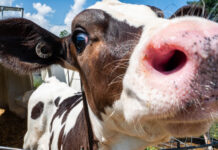“All the money in the world could not replace the experience of growing up in my small town. It proved to be an education more valuable than my college degree over the course of my lifetime. The things I learned on that proving ground carried me through a lifetime of challenges with a can-do attitude.”
— Michael Pianzetta, circa 1916
Part four of a five-part series
Paul Carl was born in Jeromesville in 1907. His father owned the Carl Hardware Store there.
As a youngster, he pestered his dad for a red coaster wagon. His father finally said he could have one but he would have to put it together himself, as each wagon was shipped in pieces.
“I think it took me a half day to assemble it but I did learn the various tools. My first summer job was working for Goog Fletcher at $1 a day and meals — helping to make hay, thresh grain, cut thistles or help feed his beautiful work horses — no tractors then.
“You really learned a lot if you were raised in a small town,” Carl wrote.
Farm animals
Even in town, during those years, most people had a small barn in which to keep horses for their family transportation, and folks knew which families in town had eggs, milk or butter available for sale.
It was supply and demand commerce at its finest. The Glenn farm held a soft spot in Paul Carl’s memories, as he wrote, “the Glenns had three sons, about our age, so we spent a lot of time there, riding horses (or calves), snitching apples from the orchard in summer and fall, hunting chestnuts in fall, mushrooms in spring, watching animals being born and helping out at threshing time by carrying water from the spring to the threshers on the barn floor. Mrs. Glenn, a motherly type, was a wonderful person and liked to have us underfoot.”
Doing chores
Carl tells that his very first paying job was for his neighbor, Mr. Austen, a retired farmer. Carl was paid 5 cents a day for leading Austen’s milk cow from a pasture field at the edge of town to his barn each evening, then back in the morning.
“I always had spending money as I could find odd jobs,” he writes. “The job that I hated the most I didn’t get paid for — cleaning out our chicken house. I didn’t mind cleaning the manure out of our horse stables to the manure pile back of the barn — Dad kept two white horses until we got our first Model T — but the chicken house was dusty and dirty.
Cleaning our cistern was a regular event — always done in the dry part of the summer — but it was a cool place to be. We always had a large garden and in World War I the kids all had “Victory Gardens” on school ground property. … Another thing the kids did in WW I was to collect black walnuts, which were used in the manufacture of gas masks,” Carl wrote.
Writing about life
It was in the twilight of Carl’s life that he typed this great collection of memories.
“I believe it was Alexander Pope who said, ‘Tis education forms the common mind. Just as the twig is bent the tree’s inclined.’ I have always felt that your genes make you what you are, but it is certainly true that the environment in your early days helps shape your life,” Carl wrote.
Next week: Part five — the series finale.
The rest of the series
- Part one: Buying local pushed in 1924
- Part two: Roots run deep in the community
- Part three: Rural people known by nicknames













